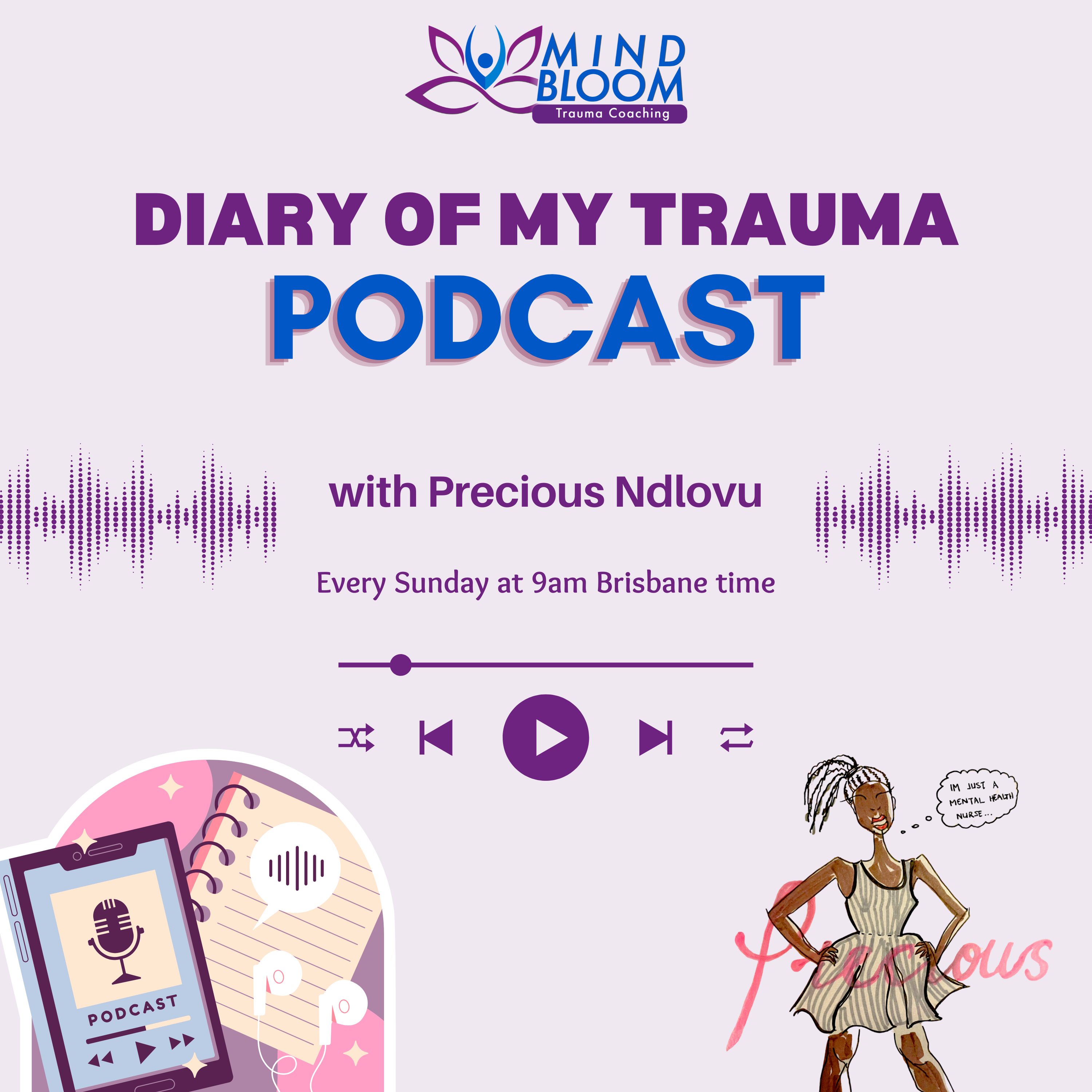Diary of My Trauma – Episode 2
Understanding Trauma and Its Impact
Trauma is often misunderstood as only stemming from major life events like abuse or violence, but it can also come from subtle and seemingly insignificant experiences. Things that most people don’t consider to be traumatic—like being unable to speak up when feeling frustrated or being told not to express emotions as a child—can leave lasting emotional wounds. In this episode of the Mind Bloom Coach Podcast, host Precious Ndlovu explores what trauma truly is, how our perception shapes our experiences, and how unresolved trauma affects our relationships, mental health, and coping mechanisms.
Drawing insights from experts like Dr. Gabor Maté and Dr. Bessel van der Kolk, Precious shares how trauma manifests in everyday life, often leading to anxiety, depression, low self-esteem, and substance abuse. She also discusses her personal journey of recognising and healing from childhood trauma, highlighting the power of self-awareness and inner work.
Big T vs. Small t Trauma
Dr. Gabor Maté distinguishes between “big T” trauma and “small t” trauma to describe different types of traumatic experiences. While big T trauma includes severe, life-altering events like abuse, violence, or natural disasters, small t trauma refers to more subtle, everyday experiences that may not seem traumatic but can still deeply affect a person, especially in childhood. These seemingly minor experiences accumulate over time, shaping emotional development, self-worth, and coping mechanisms.
Examples of Small t Trauma:
- Emotional Neglect – A parent being consistently distracted, stressed, or emotionally unavailable, making a child feel unseen or unimportant.
- Dismissal of Emotions – Being told “don’t cry” or “you’re fine” instead of having feelings validated.
- Chronic Household Stress – Growing up in an environment with frequent arguments, financial struggles, or instability.
- Misattunement – Caregivers failing to recognize or respond to a child’s emotional needs, leading to feelings of isolation.
- Lack of Positive Reinforcement – Not receiving praise, affection, or encouragement, leading to self-doubt.
- Everyday Losses or Separations – A parent being away for work, moving homes, or losing a pet without proper emotional support.
- Feeling Powerless or Silenced – Being unable to express oneself due to fear of upsetting others or not being heard.
- Comparison & Conditional Love – Feeling valued only when performing well (e.g., only receiving love or attention when achieving success).
Key Takeaways:
- Trauma is a wound—not just an event, but how we perceive and process experiences.
- It affects relationships—unresolved trauma can trigger emotional responses and impact social interactions.
- Trauma isn’t always obvious—seemingly small experiences, like being silenced as a child, can have a deep impact.
- Mental health is deeply connected—conditions like anxiety, depression, and addiction often stem from past trauma.
- Healing starts with self-awareness—challenging negative thoughts, journaling, and self-inquiry are powerful first steps.
Precious also invites listeners to start their healing journey by booking a free trauma coaching session with her.
👉 Ready to explore your trauma and begin healing? Visit www.mindbloomcoach.com to learn more!



